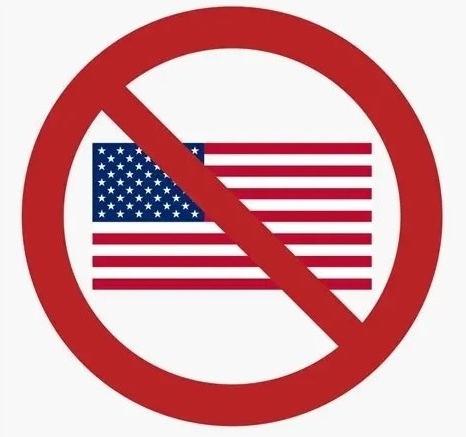The level of self-righteousness on that forum is hilarious, so it’s nice when the achievement is appreciated for what it is.
- 23 Posts
- 88 Comments
Companies can have multiple business lines.

 4·26 days ago
4·26 days agoIs your user agent set to a generic Mozilla? Some have harder challenges for certain user agents too.
I’m mocking you for insisting that the general public should use complex technical solutions because you think they’re easy to deploy at scale.
I have a few qualms with this app:
-
For a Linux user, you can already build such a system yourself quite trivially by getting an FTP account, mounting it locally with curlftpfs, and then using SVN or CVS on the mounted filesystem. From Windows or Mac, this FTP account could be accessed through built-in software.
-
It doesn’t actually replace a USB drive. Most people I know e-mail files to themselves or host them somewhere online to be able to perform presentations, but they still carry a USB drive in case there are connectivity problems. This does not solve the connectivity issue.
-
It does not seem very “viral” or income-generating. I know this is premature at this point, but without charging users for the service, is it reasonable to expect to make money off of this?
Iykyk. This technical elitism is just generally really off-putting.
-
Plus there’s limited permits for Haij. It’s not like a free-for-all anyone since Saudi Arabia greatly cracked down on illegal unauthorized Haij pilgrimage facilitators. There’s only so many pilgrims that small city can hold in a small span of time, and 1/4th of Haij pilgrims are domestic.
Oh awesome! So pleased to see Mistral AI integration for paperless-ai.

 11·6 months ago
11·6 months agoThese are for new flight bookings. International arrivals have already dropped by 11% as of February: https://www150.statcan.gc.ca/n1/daily-quotidien/250310/dq250310d-eng.htm

 9·6 months ago
9·6 months agoThe original source: https://www.oag.com/blog/canada-us-airline-capacity-aviation-market
Using forward booking data from a major GDS supplier, we’ve compared the total bookings held at this point last year with those recorded this week for the upcoming summer season. The decline is striking — bookings are down by over 70% in every month through to the end of September. This sharp drop suggests that travellers are holding off on making reservations, likely due to ongoing uncertainty surrounding the broader trade dispute.
It’s also important to note that this is more than just leisure travel between Canada and the US itself.
I don’t necessarily think these are the main driving factors, but you could attribute some part of this to:
- economic recession, because firms oftentimes cut back on travel in their budgets as the first line items to be cut (prior to layoffs), and businesses may be more reluctant to hold conferences and large meetings in-person during periods of economic stress, and fewer business negotiations/meetings are happening due to tariff anxieties.
- declining air traffic to the US overall because of visa worries, the proposed travel bans or spite - Air Canada + airline alliances competes with US airlines for passenger bookings (i.e. itineraries like London -> Toronto -> Kansas compete with equivalent US itineraries of London -> New York -> Kansas ), and visa policies like the China Transit Program exists to help Air Canada and the Star Alliance leverage Canadian airports as transit hubs to the US. Remember: if privileged Canadians are scared about being allowed entry to the US without being detained in an ICE holding facility, you imagine how citizens of developing countries must feel about traveling to the US right now.
The trend only holds true until September according to the source, so general uncertainty definitely seems to be a key driver here.

 7·6 months ago
7·6 months agoDoing so would be over Visa Debit or Mastercard Debit - not Interac. The only difference is that they have a lower interchange rate.

 51·6 months ago
51·6 months agoDogfights aren’t a thing anymore in modern aviation. There’s a reason it was barely considered in the procurement process that led to the F-35 acquisition. Sure hope other countries step up to the plate to build viable exportable alternatives to the F-35.

 218·6 months ago
218·6 months agoYes, clearly every trade agreement must benefit our local Canadian oligarchs – Irving, Weston, Rogers and Patterson. We certainly can’t use free trade and human dignity to work towards fairer, more equitable societies - that would be too logical right?

 117·6 months ago
117·6 months agodeleted by creator

 216·6 months ago
216·6 months agodeleted by creator

 238·6 months ago
238·6 months agodeleted by creator

 351·6 months ago
351·6 months agodeleted by creator

 5·6 months ago
5·6 months agoThis is what they want to do. They’ll put the tariff sticker on goods that are technically tariff-ed, but don’t even come from the US. They’ll stick that tariff sticker next to orange juice from Mexico (a country that isn’t tariffed).

 161·6 months ago
161·6 months agoThis narrative is clearly designed to deflect blame for price hikes onto the Canadian government, much like how Tim Hortons and restaurants point fingers at provincial governments whenever minimum wage goes up.
Yes, the Canadian government implemented retaliatory tariffs, but let’s not forget that Loblaws consciously chose to stick with those specific suppliers. They have the power to decide what products line their shelves. As consumers, we should actively support stores that have made the effort to switch to non-American suppliers. It’s disingenuous to suggest that there are no alternative countries exporting similar goods like canned soup, deli meat, and fruit juice. They made a conscious choice to buy American - let those clowns watch their inventory rot.

 2·6 months ago
2·6 months agoThe daily unlock code thing is a myth. The grain of truth is that the F-35 relies heavily on mission data files (MDFs), which are region-specific software packages that enable the jet to recognize threats, navigate, and employ weapons, and we depend on the US being willing to supply those updates voluntarily for our fighter jets to be useful.




















The vast majority of internet traffic originating from Canada doesn’t actually go through these lines. Do a MTR/traceroute to anywhere and unless you’re on specific commercial networks, all of your traffic will be going through a US Internet Exchange at some point because it’s way cheaper for your local greedy telecom.
Here are their ASNs:
Two are terminal links to connect isolated regions, the other two are commercial links not used by home internet users.